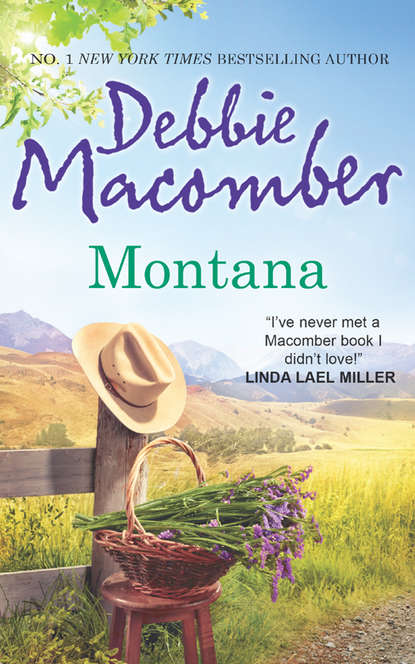По всем вопросам обращайтесь на: info@litportal.ru
(©) 2003-2024.
✖
Montana
Автор
Год написания книги
2018
Настройки чтения
Размер шрифта
Высота строк
Поля
“I need to stop at the bank,” she said, looking over at the large redbrick structure. From there she’d go to the Safeway and buy groceries. The Safeway was at the other end of town, about six blocks away. A stoplight swayed gently in the breeze at Main and Chestnut. For a while it had been the only one in the entire county. But five years ago Jordanville, forty miles east, had its first traffic light installed, stealing Sweetgrass’s claim to distinction. Gramps had taken the news hard; he’d written her a letter complaining bitterly about the changes in Montana. Too damn many people, he’d grumbled.
Without looking at her, Sam added, “I’ve got some supplies to pick up.”
Sam wasn’t unfriendly, but he hadn’t gone out of his way to make her feel welcome, either. Molly had no idea what she’d done or hadn’t done to create such … coolness in his attitude. This morning he’d seemed neutral, but neutral had definitely become cool.
“I’ll meet you at the bank when I’m finished,” he said.
Molly climbed down from the truck and hooked the strap of her purse over her shoulder. Sam walked close beside her until they reached the bank, then he crossed the street. As she opened the heavy glass doors, she caught a glimpse of him studying her. It was an uncomfortable feeling.
While the outside of the bank was relatively unchanged, the inside had been updated. The polished wood counters were gone, and except for the lobby with its marble tiles, the floor was now carpeted.
Molly moved toward the desk with a sign that stated: New Accounts.
“Hello,” she said, and slipped into the chair.
“Hi.” The woman, whose nameplate read Cheryl Ripple, greeted her with a cordial smile.
“I’m Molly Cogan,” she said, introducing herself. “Walter Wheaton’s my grandfather.”
Cheryl’s smile faded and she stood up abruptly. Almost as if she couldn’t get away fast enough, Molly thought.
“Excuse me a moment, please,” the woman said. She hurried toward the branch manager’s office, and a moment later, a distinguished-looking middle-aged man appeared.
“Ms. Cogan?” he said, coming over to her, hands tightly clenched. “I’m David Burns. Is there a problem?”
Molly blinked at him, taking in his well-tailored suit and polished shoes. “No, should there be?”
David Burns’s laugh held a nervous edge. “Not exactly. It’s just that your grandfather has … shall we say, challenged the integrity of this banking institution on a number of occasions. I came to be sure there wasn’t any problem with his account. Again.”
“None that I know of,” Molly said, wondering what her grandfather had said or done to raise such concern. On second thought she didn’t want to know. “Actually I came to open my own account.”
“Your own?” His relief was evident. “That’s great.”
“I’m moving in with my grandfather.”
“I see. Welcome to Sweetgrass. Cheryl will be more than happy to assist you.” He took a couple of steps backward before turning toward his office.
Within ten minutes Molly had signed the necessary documents and chosen a check design. As she got ready to leave, she noticed a tall attractive man standing in the lobby, watching her. When he saw Molly, he smiled and nodded as if she should know him. She didn’t. A moment later he approached her.
“Molly Cogan?”
She nodded, frowning, certain she didn’t recognize him. His was a face she would have remembered, too. Appealing, boyish, blue-eyed. His blond hair was tousled as if he’d forgotten to comb it. He stood well over six feet.
“I’m Russell Letson,” he said, stepping toward her, his hand extended. No wedding ring, she automatically noticed. His eyes darted away from her and she realized he was actually rather shy. This was something she didn’t expect from the rough, tough cowboy types she generally associated with Montana.
They exchanged handshakes as Molly mulled over where she’d heard the name before.
“I’m your grandfather’s attorney,” he added.
Gramps’s letter. That was why the name was familiar. Her grandfather had mentioned him when he’d told her about having his will updated.
“Would you have time for a cup of coffee?” he asked, glancing at his watch. “I’ve got an hour before my next appointment and there’s a matter I’d like to discuss with you.” He seemed slightly ill at ease about this.
Molly wondered what he could possibly have to say to her; she couldn’t help being curious and, to her surprise, tempted. Russell Letson was one of the best-looking men she’d seen in a while, and what amazed her was that he didn’t seem to know it. Russell added, “It won’t take long.” Just when Molly was about to agree, Sam walked into the bank, and she experienced a twinge of disappointment. “I’m afraid I can’t today.”
“Dinner then?” he suggested. “Tomorrow night, if that’s agreeable?”
“I …” Too stunned to respond, Molly stood in the middle of the bank with her mouth hanging half-open while she struggled for an answer. A date. She couldn’t remember the last time a man—an attractive single man—had asked her to dinner.
“I don’t know if Walter’s told you, but there’s a decent steak house in Sweetgrass now. We could talk there.”
“Sure,” she said, before she could find a convenient excuse. “That’d be great.”
He set a time for dinner and promised to pick her up at the ranch, although it was well out of his way. Handsome and a gentleman, besides. She could grow to like Russell Letson, Molly decided. He was a pleasant contrast to the surly foreman who’d driven her into town.
“I’ll see you tomorrow evening, then,” Russell said, giving her a small salute before walking out of the bank.
It had happened so fast Molly’s head was spinning. She walked over to Sam, who leaned against the lobby wall, waiting for her.
“What was that about?” he asked with a scowl.
After the silent treatment he’d given her all the way into town, she wasn’t inclined to answer him. “Nothing much.”
“You’re letting Letson take you to dinner.”
If he already knew, why had he asked her? “As a matter of fact, I am,” she returned, and enjoyed the rush of satisfaction she felt at letting him know she had a date.
Four
It felt good sitting on the porch, rocking and whittling, Walt Wheaton mused. Molly’s boys sat on the top step, sanding a couple of carvings he’d fashioned from canary wood. The yellowish wood was one of his favorites. He hadn’t worked on his carvings for at least six months. Molly and the boys had renewed his energy. Gladdened his heart. He might not always remember what day of the week it was anymore, but that didn’t matter. Not now, with Molly and the boys here where they belonged.
It wouldn’t take much to imagine it was his own Adam sitting on that step, forty or so years back, with a school friend. Or to imagine his Molly in the kitchen getting dinner ready to put on the table.
Walt’s fingers skillfully moved the sharp knife over the wood, removing a sliver at a time, cutting away everything that wasn’t the bear. He’d chosen oak for this piece, and the black bear would stand about ten inches high on his hind legs. He’d give it to Tom. The boy reminded him of a young bear, struggling to prove his manhood, all legs and arms and feet. He remembered himself at that age, when his voice had danced between two octaves. He’d been tall and thin like Tom, with legs like beanpoles and no chest to speak of.
Walt toyed with the idea of saying something to his great-grandson. He wanted to assure Tom he’d fill out soon enough, but he didn’t want to embarrass the boy.
The three worked in comfortable silence. Walt yearned to share stories of his youth with the two brothers, but talking drained his energy. The hell with it, he decided. God had given him the opportunity to spend time with these young ones and he was going to use it.
“Bears eat trees, you know,” he stated matter-of-factly.
Tom glanced up. “Trees? Are you sure, Gramps?”
The older of Molly’s two boys had a skeptical nature; Walt approved. He didn’t like the idea of his kin accepting anyone or anything at face value. He suspected his granddaughter might be more easily swayed, but her son wouldn’t be. It reassured him that the boy revealed some good old-fashioned common sense, a virtue in shockingly short supply these days. Take that local militia group, for example. He’d butted heads with them more than once in the past few years. While Walt didn’t necessarily agree with everything the government did, he sure didn’t believe the militia’s wild claims of foreign troops planning to invade the country with the assistance of the federal government. That was as ludicrous as their other ideas, like computer chips surgically implanted in people’s brains so the government could control their activities. He’d never heard such nonsense in all his days and cringed every time he thought about decent folks believing such craziness.
“Gramps?”
Tom’s voice shook him out of his thoughts. He had trouble keeping his mind on track these days.











